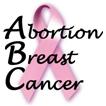RCOG statement on abortion
Coalition on Abortion/Breast Cancer Chastises the U.K.'s Royal College of Obstetricians and Gynecologists for Deceiving Women About Abortion-Breast Cancer Link
The Coalition on Abortion/Breast Cancer chastised the U.K.'s abortionists at the Royal College of Obstetricians and Gynecologists (RCOG) today for publishing a statement in its revised guidelines entitled, "The care of women seeking induced abortion," which falsely claims "induced abortion is not associated with an increase in breast cancer risk." 1
"The RCOG's statement is shameful, unethical, and totally self-serving. It has more to do with protecting abortionists from massive medical malpractice lawsuits and absolutely nothing to do with scientific evidence," said Karen Malec, president of the Coalition. "The RCOG's abortionists are following the tobacco industry's playbook."
The RCOG ignored advice from three internationally recognized experts (Professor Joel Brind, Angela Lanfranchi, MD, FACS and Patrick Carroll) and medical texts that say increased childbearing, especially starting before age 24, sharply reduces breast cancer risk. Obviously, the woman who has an induced abortion forfeits the protective effect of childbearing.
In its statement, the RCOG omitted 51 of 68 epidemiological studies dating from 1957 and biological and experimental evidence showing that induced abortion leaves the breasts with more places for cancers to start, due to elevated levels of pregnancy hormones that stimulate cell division and dramatic breast growth.
By contrast, women with first full term pregnancies experience a protective process (differentiation) during the last months of pregnancy that matures 85% of the breast lobules into permanently cancer-resistant lobules. 2 Every subsequent full term birth reduces risk an additional 10% and matures more lobules into cancer-resistant lobules.
The RCOG's statement conveniently excluded seven studies published since 2007 reporting an abortion-breast cancer (ABC) link:
1) Patrick Carroll's 2007 ecological study involving eight European nations, including the United Kingdom, which concluded abortion is the "best predictor" of future breast cancer trends; 3
2) An American study, Dolle et al. 2009 (which included National Cancer Institute branch chief Louis Brinton as a co-author) whose authors reported a statistically significant 40% risk increase among women with abortions; 4
3) An Armenian study in 2011 reporting a nearly tripled increase in risk for women with abortions; 5 and
4) Two Chinese studies 6 7; and studies from Iran and Turkey. 8 9
In order to support their false claim that abortion is unrelated to increased breast cancer risk, the RCOG used studies that have received sharp criticism in medical journals because of their flaws, including one study that Dr. Brind publicly called fraudulent - Delellis Henderson et al. 2008. 10 11 12 13 14 15
The RCOG cited a 2009 statement from their fellow abortionists at the American College of Obstetricians and Gynecologists, whose authors claimed a "causal relationship" had not been demonstrated - much like the tobacco industry which laid the burden of proof of causation on consumers. 16
The RCOG cited the review, Wingo et al. 1997, although Dr. Phyllis Wingo acknowledged the ABC link in a 1986 letter to the journal, Lancet. 17 18 Remarkably, Wingo's 1997 review identified 11 of 12 studies reporting risk increases for women with abortions. Nevertheless, the authors' political courage failed them, and they refused to acknowledge the ABC link in their conclusions.
"The RCOG published its revised guidelines on the day before Thanksgiving," observed Mrs. Malec. "If you want your misdeeds to go unnoticed by the press, it's always best to publish your release on the day before a holiday."
The Coalition on Abortion/Breast Cancer is an international women's organization founded to protect the health and save the lives of women by educating and providing information on abortion as a risk factor for breast cancer.
- 1. "The care of women requesting induced abortion: Evidence-based clinical guideline #7." November 23, 2011. Available at: http://www.rcog.org.uk/news/rcog-release-revised-guidelines-women-seeking-induced-abortion-published-1.
- 2. Lanfranchi, A. Normal breast physiology: The reasons hormonal contraceptives and induced abortion increase breast cancer risk. The Linacre Quarterly 2009;76:236-249. Available at:
- 3. Carroll, P. The breast cancer epidemic: modeling and forecasts based on abortion and other risk factors." J Am Phys Surg Vol. 12, No. 3 (Fall 2007) 72-78. Available at: http://www.jpands.org/vol12no3/carroll.pdf.
- 4. Dolle J, Daling J, White E, Brinton L, Doody D, et al. Risk factors for triple-negative breast cancer in women under the age of 45 years. Cancer Epidemiol Biomarkers Prev 2009;18(4)1157-1166. Available at:
- 5. Khachatryan L, Scharpf R, Kagan S. Influence of diabetes mellitus type 2 and prolonged estrogen exposure on risk of breast cancer among women in Armenia. Health Care for Women International 2011;32:953-971. Available at: http://www.tandfonline.com/doi/abs/10.1080/07399332.2011.569041.
- 6. Lin Jie, Yu Jian-feng. A case-control study on risk factors of breast cancer among women in Cixi. Zhejiang Journal of Preventive Medicine 2008. In Chinese. Available at: http://en.cnki.com.cn/Article_en/CJFDTOTAL-ZYFX200806003.htm.
- 7. Xing P, Li J, Jin F. A case-control study of reproductive factors associated with subtypes of breast cancer in Northeast China. Medical Oncology, e-publication online September 2009. Available at: http://www.ncbi.nlm.nih.gov/pubmed/19771534.
- 8. Naieni KH, Ardalan A, Mahmoodi M, Motevalian A, Yahyapoor Y, et al. Risk factors of breast cancer in North of Iran: A case-control in Mazandaran Province. Asian Pacific Journal of Cancer Prevention 2007;8;395-398. Available at: http://www.apocp.org/cancer_download/Volume8_No3/395-398%20c_Naieni%204.pdf.
- 9. Ozmen V, Ozcinar B, Karanlik H, Cabioglu N, Tukenmez M, et al. Breast cancer risk factors in Turkish women – a University Hospital based nested case control study. World J of Surg Oncol 2009;7:37. Available at: http://www.wjso.com/content/7/1/37.
- 10. Brind J. Induced abortion as an independent risk factor for breast cancer: A critical review of recent studies based on prospective data. J Am Phys Surg Vol. 10, No. 4 (Winter 2005) 105-110. Available at: http://www.jpands.org/vol10no4/brind.pdf.
- 11. Furton E. Editorial. The corruption of science by ideology. Ethics and Medics (Dec. 2004) Vol. 29, No. 11, p. 1-2. Available at:
- 12. Schlafly A. Legal implications of a link between abortion and breast cancer. J Am Phys Surgeons 2005;10:11-14. Available at: http://www.jpands.org/vol10no1/aschlafly.pdf.
- 13. Brind J. Induced Abortion and Breast Cancer Risk: A Critical Analysis of the Report of the Harvard Nurses Study II. Journal of American Physicians and Surgeons (Summer 2007) Vol. 12, No. 2, p. 38-39. Available at: http://www.jpands.org/vol12no2/brind.pdf.
- 14. DeLellis Henderson K, Sullivan-Halley J, Reynolds P, Horn-Ross P, Clarke C, et al. Incomplete pregnancy is not associated with breast cancer risk: the California Teachers Study. Contraception 2008;77:391-396. Available at: http://www.ncbi.nlm.nih.gov/pubmed?term=delellis%20henderson%2C%20incomplete%20pregnancy.
- 15. Brind J. California Teachers Study report on incomplete pregnancy is flawed. Contraception 2009; Mar;79(3):240.
- 16. Committee on Gynecologic Practice. ACOG Committee Opinion No. 434: induced abortion and breast cancer risk. Obstet Gynecol 2009;113:1417–8.
- 17. Wingo PA, Newsome K, Marks JS, Calle EE, Parker SL.et al. The risk of breast cancer following spontaneous or induced abortion. Cancer Causes Control 1997;8:93-108.
- 18. Stadel BV, Rubin GL, Wingo PA, Schlesselman JJ. Letter. Oral contraceptives and breast cancer in young women. Lancet 1986;ii:436.



